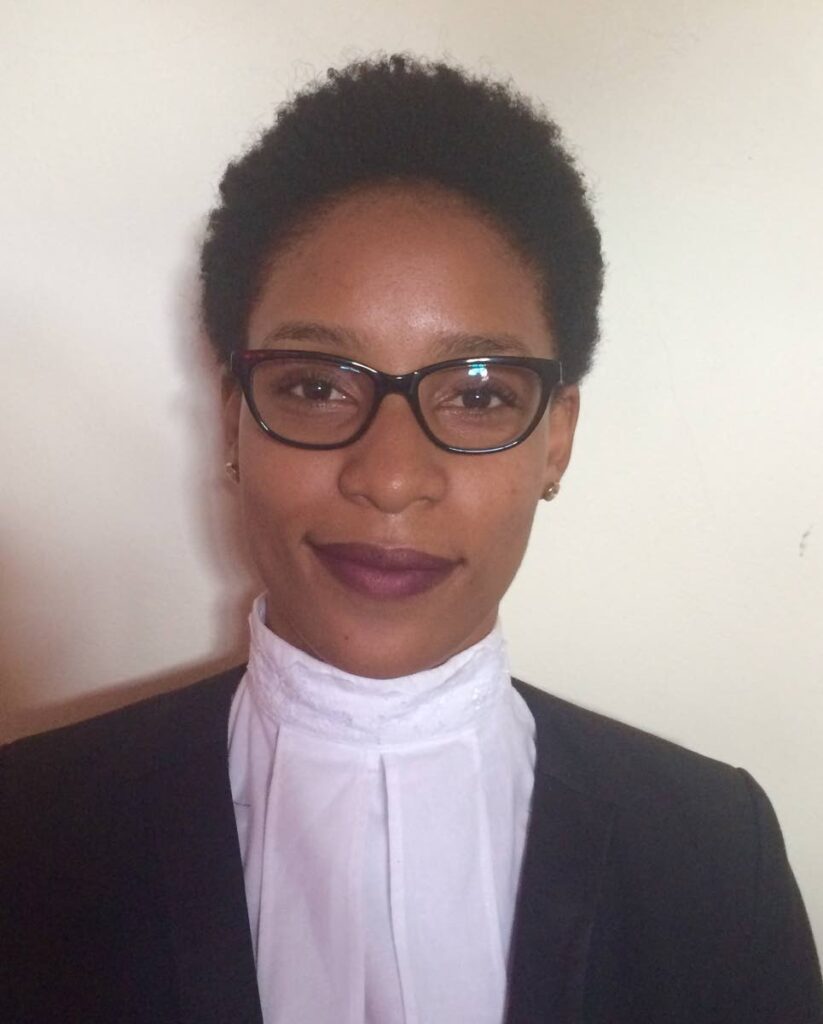You need to be the bigger person

Kanisa George
WHY IS IT hard to be the bigger person? Why is it hard to let go of the hurt caused by conflict and be the first to offer an olive branch?
Navigating difficult situations involving complex personalities and unbearable narratives can have a lasting impact on our lives. So, the quicker we get them behind us, the better.
Regardless of how rigid we are or firm in our stance we may be, no one wants to languish over an unsettling fallout with a best friend or a misunderstanding that turned your workspace into a war zone. Conflicts can make our lives unnecessarily complicated, and even if we do all we can to avoid them, they have a sneaky way of finding us. As much as we sometimes work hard to dodge conflict, few want to tap out once they have descended into the arena.
We exert a huge amount of effort trying to avoid conflict, but somehow can't retain the same energy to stop things when they get messy.
Are we so hung up on the issue of fault that we choose to stand on principle, or do our egos prevent us from letting go even when there is no apparent offender? Why can't we throw our gloves in and be the bigger person?
And even when we are minded to let things go, how do we differentiate between those moments when we must fiercely advocate and those when we choose to be the bigger person and move on from the situation?
In truth, the latter is not always the best course of action and vocalising your truth can, in some situations, surmount any desire to throw your hands in the air.
When you choose to be the bigger person you are actively deciding to dissolve the negative feelings surrounding the conflict and not allowing those feelings to consume you. This act of choosing to be the bigger person can bring a sense of relief and empowerment, as you take control of the situation and your emotions.
Whether you feel hurt, angry or confused, instead of allowing your emotions to consume you, being the bigger person means you choose to accept the reality of the situation.
Psychotherapist Sheri Heller shares that being the bigger person requires the "willingness to find common ground and achieve resolution, even if each person's reality differs."
Naturally, and through socialisation, we believe that any perceived wrong levied our way must be met with a resolution or retribution in our favour.
We view conflict as a game of winner-takes-all, and with our emotions at the helm, arriving at a neutral space can be near impossible, for no one wants to acknowledge defeat.
But when all is said and done, how well does this foster healthy, lasting relationships?
When faced with low-stakes conflicts that don't carry significant fallout, it might be worth letting things go even if you believe you are right.
Psychologist Christian de la Huerta believes that even when we are fundamentally right about an argument, the pleasure from winning is fleeting and ultimately not worth it, especially if the relationship is plagued with discord and mistrust.
Contrary to popular thought, choosing to be the bigger person can release you from the hold of resentment. Unresolved or lingering conflict causes a host of negative emotions, leading to resentment and inferiority. By no longer allowing conflict to take root, you are setting sail to all those nasty emotions that hold you hostage. This liberation from resentment can bring a renewed sense of hope and positivity.
Licensed psychologist Keita D Carter believes that when you decide to be the bigger person, it's about saying, "I'm not willing to be entangled with you in this way for an extended period or permanently." This doesn't mean you're allowing others to take advantage of you. It's about setting boundaries and choosing not to engage in conflicts that are not worth your time and energy.
It goes much further than this. When you make a choice to protect your happiness and peace of mind, you will learn to instinctively initiate and engage in interactions that promote your happiness and overall well-being.
This principle does not apply across the board; some situations require you to sink your heels in and advocate your position. You may find yourself in an interaction so daunting that once you have exhausted all options and have arrived at the end of your rope, being the bigger person may not be the right approach. What is key in these situations is finding the best way to express your thoughts and feelings in a cogent, respectful and fulfilling manner so that you are not left feeling you were unfairly treated.
Be mindful, being the bigger person is not the best approach for dysfunctional dynamics. One writer asserts that this position often hinges on the victim suppressing their feelings and needs to maintain peace. One party is forced to ignore deep-rooted feelings about the situation and is often denied a healthy outlet to express those feelings. This not only creates a toxic environment, but a dysfunctional pattern of behaviour.
Being the bigger person is no easy feat. It can take significant inner power and resilience, and it is not always easy to determine when this is the best approach. Keep an open mind, for as you learn more about yourself and how well you identify, manage and categorise conflict, it will become easier to find the right balance.
You don't always have to be the bigger person, but why stress the small stuff when you can choose to let them go?


Comments
"You need to be the bigger person"